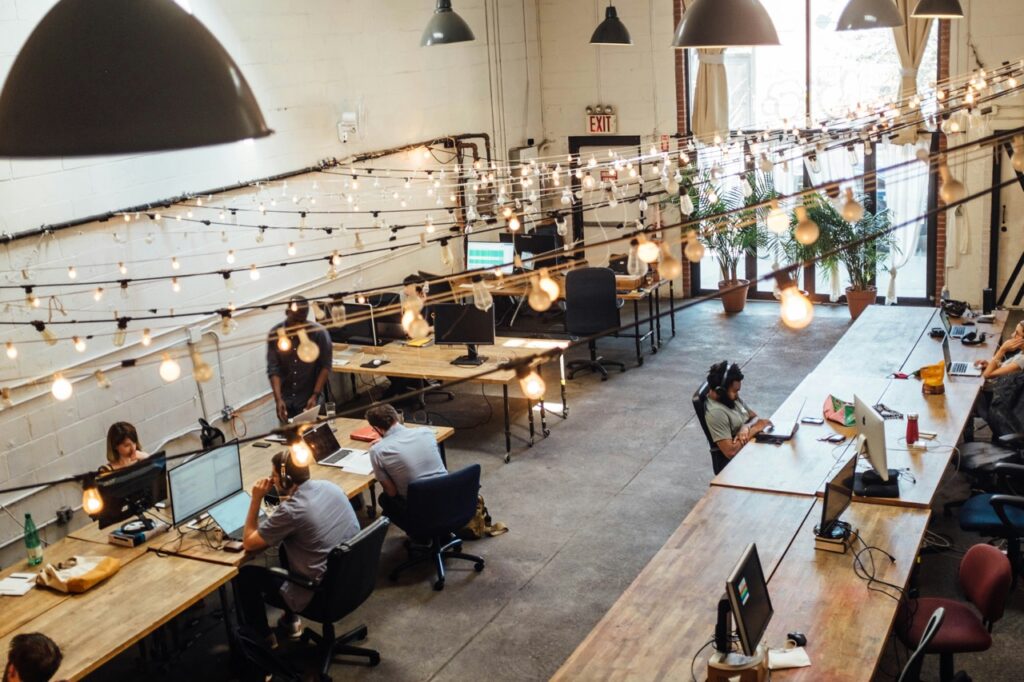Understanding The Small Business Landscape In Melbourne: A Comprehensive Guide For Entrepreneurs

An overview to Melbourne’s Economy and the Small Business Environment
Melbourne, the vibrant capital of Victoria, is a thriving economic hub in Australia. The city’s diverse and resilient economy is powered by various sectors, including finance, healthcare, education, tourism, and manufacturing. At the heart of Melbourne’s economic success lie small businesses, which play a crucial role in driving growth, fostering innovation, and creating local jobs.
Defining Small Businesses in Melbourne:
In Australia, a small business is typically defined as an enterprise employing fewer than 20 people. Melbourne’s small business ecosystem encompasses a wide array of commercial entities, including:
| Category | Description | Percentage of Small Businesses in Victoria |
| Non-employing businesses (sole proprietors) | Businesses with no employees. | 60% |
| Businesses employing 1-19 people | Businesses with 1 to 19 employees. | 37% |
These businesses, often referred to as “local businesses,” “mom-and-pop shops,” or “SMEs,” are vital in catering to the specific needs of the local community, stimulating competition, and bolstering the city’s economic resilience. As of June 2021, Greater Melbourne was home to 499,950 small businesses, representing 78% of all small businesses in Victoria and surpassing other major Australian cities.
Melbourne’s small business landscape is diverse, with examples ranging from local bakeries and boutique stores to tech startups, artisanal shops, and freelance consultancies. Solo enterprises and family businesses also form a significant portion of the city’s entrepreneurial fabric.
Thriving and Developing Industries for SMEs in Melbourne
Several industries demonstrate strong growth projections, indicating promising sectors for SMEs:
| Sector | Projected Growth (2023-2026) | Additional Workers Needed | Key Opportunities/Occupations |
| Health care and social assistance | Highest workforce growth | 8,507 | Aged and disabled carers, registered nurses, child carers |
| Education and training | 2.2% | 5,003 | Online teaching and tutoring |
| Professional, scientific, and technical services | 1.7% | 1,865 | Social media agencies |
| Transport, postal, and warehousing | 1.0% | 4,737 | E-commerce businesses, opportunities linked to Melbourne’s large shipping port |
| Technology and innovation | Thriving startup scene | Not specified | Sectors like med-tech, fin-tech, ag-tech, supported by co-working spaces and incubators |
Financial Strategies for Small Businesses in Melbourne
Funding and Grants
Navigating the financial landscape is crucial for the success and sustainability of small businesses in Melbourne. The city offers a range of funding options and grants, including:
- Government Grants: The City of Melbourne provides grants and sponsorships to support individuals, community organisations, and businesses in various sectors. These grants and sponsorships help deliver programs, events, products, and services that benefit Melbourne and its residents.
- Small Business Loans: The Australian Government’s Entrepreneurship Facilitators program connects small businesses with private lenders, while major banks like ANZ, NAB, and Westpac offer tailored loan solutions.
- Local Funding Sources: Organisations such as Kinetic Super and LaunchVic offer funding and accelerator programs for startups in Melbourne’s innovation ecosystem.
Budgeting methods and financial planning for growth
Navigating the financial landscape is a critical component of ensuring the success and sustainability of small businesses in Melbourne. With diverse funding options, robust budgeting methods, and strategic financial planning, business owners can effectively manage their resources and drive growth.
Several budgeting methods can be employed:
- Zero-based budgeting: Starting from scratch each period, this method requires justifying every expense. It is useful for businesses with tight margins but can be time-consuming.
- Incremental budgeting: Using the previous period’s budget as a base and adjusting for changes, this method is simple but may perpetuate overspending.
- Cash flow forecasting: Projecting future cash inflows and outflows, this method helps manage liquidity and enables strategic spending decisions.
Financial Planning for Growth
- A business plan with clear financial goals and growth strategies is essential.
- Robust financial reporting and analysis are needed to track performance metrics.
- Professional advice from accountants or financial advisors can assist with strategic planning.
- Regularly reviewing pricing strategies ensures profitability as the business scales.
Legal and Tax Compliance for Small Businesses in Australia
Small businesses in Australia must navigate various legal and tax implications to ensure compliance and avoid penalties. Key considerations include:
- Choosing the appropriate business structure (sole trader, partnership, company, or trust)
- Obtaining necessary licenses and permits based on industry and location
- Complying with employment laws, consumer protection regulations, intellectual property laws, and privacy laws
- Understanding income tax obligations, Goods and Services Tax (GST) registration, payroll tax, and available tax concessions and deductions
- Maintaining accurate financial records, lodging tax returns and activity statements on time, and seeking professional advice from accountants or tax advisors
Navigating the complex world of legal and tax compliance can be daunting for small business owners in Australia. However, by taking the time to understand and adhere to the relevant requirements, you can protect your business from potential pitfalls and set it up for long-term success.
Staying compliant not only helps you avoid costly penalties but also allows you to take advantage of various concessions and deductions designed to support small businesses. While it may seem overwhelming at first, seeking guidance from professionals and staying informed about your obligations can go a long way in ensuring your business thrives in the Australian market.
The impact of SMEs in Melbourne
Economic Contributions and Impact
Small and medium-sized enterprises (SMEs) are the backbone of Melbourne’s economy, contributing significantly to job creation, innovation, and community development. The report released by the Australian Small Business and Family Enterprise Ombudsman highlights the substantial economic impact of small businesses across Australia, particularly in 2021-22 with small businesses across Australia contributing up to $506 billion, accounting for one-third of the country’s GDP.
Melbourne’s 2.5 million small businesses provide employment opportunities for a significant portion of the population, including apprentices and trainees. The city’s inclusive and supportive business environment is reflected in the diversity of small business owners, with increasing female ownership and a significant representation of mature-aged entrepreneurs.
However, small business owners in Melbourne face challenges such as the need for support for younger entrepreneurs, financial struggles, and the importance of recognising the contributions of self-employed individuals. Despite these challenges, the resilience and community spirit demonstrated by Melbourne’s small business owners underscore their vital role in the city’s social and economic fabric.
Takeaways for Aspiring Entrepreneurs in Melbourne
Melbourne presents a vibrant and supportive environment for aspiring entrepreneurs, with a high concentration of small businesses and a positive trend for business growth. Aspiring entrepreneurs should consider aligning their ventures with Melbourne’s high-growth industries, such as healthcare and social assistance, education and training, and professional services.
To get started, entrepreneurs should:
- Research trending sectors and identify business ideas that align with their skills and interests
- Develop a comprehensive business plan outlining financial goals, growth strategies, and budgeting methods
- Explore available grants, loans, and funding programs in Melbourne
- Connect with Melbourne’s startup community through networking events and co-working spaces
Melbourne’s thriving small business landscape offers a wealth of opportunities for aspiring entrepreneurs. By understanding the local economy, identifying potential opportunities, and leveraging the resources available, entrepreneurs can build successful ventures that contribute to Melbourne’s economic growth and community development. With a supportive entrepreneurial ecosystem and a diverse range of industries, Melbourne is an ideal location for small businesses to thrive and make a lasting impact.
FAQ’s
Does Melbourne offer startup incubators?
Melbourne does offer startup incubators! Melbourne has a thriving startup scene, particularly in sectors like med-tech, fin-tech, and ag-tech. This startup ecosystem is supported by co-working spaces and incubators. Additionally, the City of Melbourne provides grants to small businesses for various purposes, and organisations like Kinetic Super and LaunchVic offer funding and accelerator programs for startups in Melbourne.
What resources are available to support new entrepreneurs in Melbourne?
Melbourne has a large and growing small business sector with support available, such as government grants, loans, and a network of organisations like the Victorian Chamber of Commerce and Startup Victoria.
VIC or NSW – which state is best for growing a startup?
It depends on several factors, but both cities offer excellent opportunities for starting a business. Here are some key considerations:
What industry is your business in?
Melbourne is stronger in biotech, hardware, and manufacturing industries
Sydney has more opportunities in medical devices, software, and financial services
How important is access to investment capital?
Sydney has Australia’s largest startup ecosystem and more venture capital firms
But Melbourne is catching up rapidly in attracting investment for new businesses
What are your lifestyle preferences?
Melbourne is often ranked as one of the world’s most livable cities
Sydney offers a coastal lifestyle but is more expensive for housing/office space
Do you need to be close to customers/suppliers?
If your target market is local, choose the city that aligns best with your customer base
For digital/remote businesses, the location matters less
What kind of talent do you need to hire?
Both cities have great universities producing skilled graduates
But the specific talent pool may vary based on your industry
In summary, research which city better suits your industry, funding needs, lifestyle, customer base, and hiring requirements when deciding between starting your business in Melbourne or Sydney.


